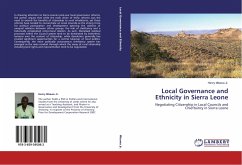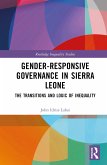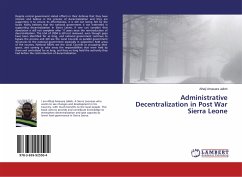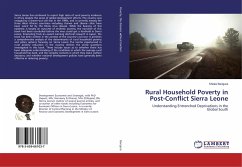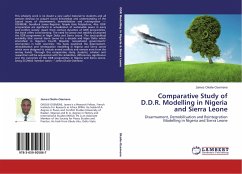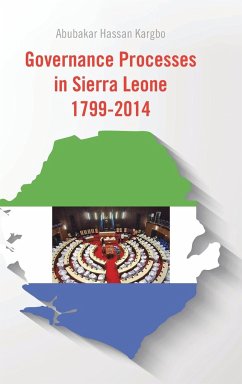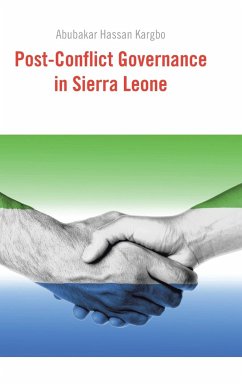In drawing attention to Sierra Leone's post-war local governance reforms, the author argues that while the main driver of these reforms was the need to extend the benefits of citizenship to rural inhabitants, yet these reforms have tended to concentrate on Local Councils as the strong force for political participation and development ignoring the salience of unequal relations between ethnic groups, the role of chieftaincy and a historically complicated centre-local relation. As such, liberalised political processes within the Council system tend to be dominated by interethnic tensions over the content of citizenship, while devolution generally has created significant opportunities for a central takeover of local politics. Consequently, the more politically autonomous chieftaincy system has emerged as the main conduit through which the issues of rural citizenship including land rights and representation tend to be negotiated.
Bitte wählen Sie Ihr Anliegen aus.
Rechnungen
Retourenschein anfordern
Bestellstatus
Storno

